With demand rising for country-specific business cases, the William Davidson Institute, in collaboration with USAID, delivered its fourth case writing workshop for university faculty in the Philippines – the second held this year in the country.
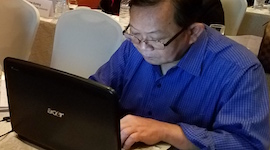
In the past, one workshop was held annually. But this year, a second was added for Sept. 5-7 as previous workshop participants have increasingly begun to teach cases they developed, creating a greater demand from Filipino faculty who have not had the opportunity to attend the workshop and write their own case studies.
The workshop is part of the Science, Technology, Research and Innovation for Development – or, STRIDE – initiative, a five-year, multimillion-dollar effort funded by the United States Agency for International Development (USAID) in partnership with RTI International. Its goal is to foster economic growth and development in the Philippines through support of education, research and industry partnerships in high-growth economic fields, including science and technology.
“Many participants have heard about the workshops from their colleagues and have seen case studies being taught successfully at their schools,” Daniel DeValve, project administrator for WDI’s Grants Management team, said about the workshop’s popularity in the Philippines. “Plus, working with small- and medium-sized enterprises (SMEs) on real-world issues and learning the case teaching methodology also improves teaching pedagogy, which leads to increasing demand.”
Thirty-two professors from a variety of disciplines and representing more than 15 colleges and universities were chosen from 45 applicants to attend the three-day workshop in Cebu City. After hosting the first two workshops in Manila, the past two have been held outside the capital city to capture the experience and input of professors at universities from around the country. Last April’s workshop was held in Iloilo City.
Julie Felker, a WDI case writing consultant and former associate dean at the University of Michigan-Dearborn College of Business, led the September workshop. She said the participants were very enthusiastic and committed to getting their cases published.
“They really appreciated that not only would their own students benefit from the cases, but through WDI Publishing’s global network, students from all over the world could be exposed to the opportunities and challenges facing Filipino SMEs,” Felker said.
Each faculty member arrived at the workshop with an idea for a case study that examines a company or organization in the country. During the three-day workshop, Felker and WDI case writing consultant Andrea Meyer assisted the professors in drafting their case studies.
“The participants really seemed to appreciate the systematic approach that we took to case writing and took full advantage of the time set aside for actually drafting sections of their case,” Felker said. “My goal was to have them write as much as possible during the three days we spent together so they would have a solid foundation on which to complete their first drafts.”
The professors continue to receive guidance from Meyer after the workshop and once their case study is complete, they will send the draft to WDI Publishing for additional editing and feedback.
WDI Publishing Manager Sandy Draheim also attended the workshop and gave attendees a view into what happens with their business case when it arrives at WDI and is put into the pipeline for formal publication.
“Throughout the workshop, I was able to share ‘real world’ examples of what happens throughout the case publishing process,” Draheim said. “Additionally, Professor Felker would periodically look to me to share anecdotes with the attendees about common case writing challenges, legal approvals, and what makes a good case.”
Completed cases will be featured on the Philippines Case Collection hosted by WDI Publishing and available for free to faculty around the world. To date, 52 cases and mini-cases written by previous workshop participants are available. Visits to the case collection web page continue to grow, and Draheim consistently markets the cases to a growing list of professors in the Philippines as well as those around the world.
The cases are some of the first to be written by Filipino professors about domestic companies, and discuss the challenges and successes of companies and organizations in a variety of fields – including healthcare, software, ecotourism, microfinance, marketing, and many others. The cases will help prepare students for careers in these high-growth sectors by exposing them to real-life challenges and dilemmas of Filipino companies, and encouraging them to use creative problem-solving skills.
Each summer, as part of its mission to provide high-quality learning opportunities to University of Michigan students, WDI sponsors interns who work overseas with international organizations.

This year, five U-M graduate students representing five different schools across campus are working in the education, healthcare and poverty alleviation fields. The projects are based in Ghana, Rwanda, Ethiopia, India, Peru and the Philippines.
In addition to providing the students with meaningful business and cultural experience that comes with working internationally, the summer internships also provide WDI’s five initiatives with important insights from the field. This summer’s internships are managed in collaboration with WDI’s Performance Measurement Initiative (PMI), Education Initiative, and Healthcare Initiative.
“The PMI team is excited to provide measurement advice and support to WDI’s interns, learn from their related experiences, and apply those learnings to current and future projects,” said PMI Program Manager Heather Esper. “In particular, we are interested in learning more from the Pearson Affordable Learning Fund/ Affordable Private Education Centres internship in the Philippines. (Learn more about these projects below). Implementing and institutionalizing a new measurement system centered on learning, and conducting demand analyses and customer segmentation are both areas of great interest to our partners.”
Here are the interns and their projects.
Naomi Wilson, School of Education
Organization: Pearson Affordable Learning Fund (PALF) in partnership with Omega Schools
Country: Ghana
PALF makes minority equity investments in for-profit companies to meet the growing demand for affordable education across emerging market countries. Their vision is to help millions of children in the world access a quality education in a cost effective, profitable and scalable manner. Additionally, organization wants to demonstrate to governments and donors that private education can help to educate their youngest citizens in an efficient way.
Omega Schools is a chain of affordable schools in Ghana delivering quality education affordably to 15,000 low-income students.
As Omega continues its growth, it needs a structured, evidence-based, and easy-to-use software tool for selecting new school sites and determining what price point would be appropriate for specific locations. Wilson will research similar tools already in place, analyze enrollment and profitability of current schools, visit current and potential school site and identify key factors to be considered in site selection.
Michael Manansala, Ford School of Public Policy
Organization: PALF in partnership with Affordable Private Education Centres (APEC)
Country: The Philippines
APEC is a chain of affordable, high-quality secondary schools based in metro Manila focused on employability and life skills.
Manansala will aim to improve annual student assessment and quarterly academic reporting by analyzing existing student performance data and benchmarking it against publicly available data to determine learning outcomes. He also will review existing research and conduct a series of qualitative customer interviews and quantitative customer surveys to better understand why some parents send their children to APEC while others don’t.
Carissa De Young, Ross School of Business/School of Natural Resources and Environment
Organization: Shared-X
Country: Peru
Shared-X is a for-profit, startup social impact business in its first year of operation. It works to lift thousands of farmers out of extreme poverty by deploying advanced farming techniques on highly productive land to close the agricultural yield gap between developed and developing nations. Through the direct sale of specialty crops to international markets, Shared-X provides social, environmental, and economic benefits to local farming communities and generates strong returns for shareholders. Shared-X operates test farms that demonstrate best farming practices and secure contracts for its crops. It then expands access to its technology and markets to smallholder farmers in surrounding communities.
De Young will design a strategy to measure, communicate, and expand the social impact of Shared-X’s model of engagement with smallholder farmers. She will identify and measure impact by conducting interviews with stakeholders and experts ranging from current and potential future cooperative members, Shared-X personnel, and leaders in similar companies. She will then compare her findings with industry best practices to create a proposal for key performance indicators.
De Young also will identify a pathway to continue replicating the Shared-X model with additional smallholder farmers in other regions where Shared-X farms exist.
Elisabeth Michel, School of Public Health
Organization: The Ihangane Project (TIP)
Country: Rwanda
TIP empowers local communities to develop sustainable, effective, and patient-centered health care delivery systems that holistically respond to the needs of vulnerable populations. It envisions a world in which quality health care leads to healthy, inclusive, and empowered communities. TIP has been working with Ruli District Hospital in Rwanda and its seven associated health centers to determine key strategies for improving health outcomes within the community.
Michel will facilitate a successful hospital retreat that creates a shared vision of high-quality and patient-centered health care at Ruli, and includes an implementable framework for decision-making and problem solving. She also will help the hospital staff implement recommendations that come from the retreat.
Dilparinder Singh, Ross School of Business
Organization: PATH
Countries: India and Ethiopia
PATH is a Seattle-based international, nonprofit health organization that creates sustainable, culturally relevant solutions, enabling communities worldwide to break long-standing cycles of poor health. PATH is one of many global health organizations working with countries to reduce malaria deaths.
Singh will work with PATH to conduct a market landscape of current malaria testing and treatment algorithms in Ethiopia. He also will work with PATH’s India Innovation Hub, which encourages innovative approaches to healthcare.
Julie Felker, who will lead a WDI case writing workshop in the Philippines in April, said writing a business case is like penning a detective novel.
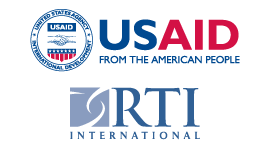
“There are many unknowns, information is not always clear, and students have to put the pieces together to solve the mystery – meaning, make a decision,” she said. “And it requires multiple drafts. You never get it right the first time.”
The three-day workshop is part of the Science, Technology, Research and Innovation for Development – or, STRIDE – initiative, a five-year, multimillion-dollar effort funded by the United States Agency for International Development (USAID) in partnership with RTI International. Its goal is to foster economic growth and development in the Philippines through support of education, research and industry partnerships in high-growth economic fields, including science and technology.
This is the third case writing workshop WDI has organized and delivered, and the first one led by Felker, a WDI case writing consultant and former associate dean at the University of Michigan-Dearborn College of Business.
Thirty-five professors from a variety of disciplines will attend the April 6-8 workshop in Iloilo City, a member city of the USAID Philippines’ Cities Development Initiative (CDI). The two previous workshops were held in the capital city of Manila; the new location better incorporates the experience and input of professors at universities outside of Manila, organizers said.
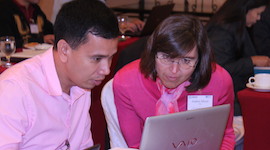
WDI case writing consultant Andrea Meyer, right, helps a professor with his business case at an April 2015 workshop in Manila.
Each of the faculty members will arrive at the workshop with an idea for a case study that examines companies or organizations in the Philippines. Over the three days, Felker and WDI case writing consultant Andrea Meyer will help the professors begin writing an effective case study. After the workshop, the professors will get editorial guidance from the WDI Publishing staff.
Completed cases will be featured on the Philippines Case Collection hosted by WDI Publishing and available for free to faculty in the Philippines and other universities around the world. To date, 41 cases and mini-cases written by previous workshop participants are available.
The cases are some of the first to be written by Filipino professors about domestic companies, and discuss the challenges and successes of companies and organizations in a variety of fields – including health care, software, ecotourism, microfinance, marketing and many others. The cases will help prepare students for careers in these high-growth sectors by exposing them to real-life challenges and dilemmas of Filipino companies, and encouraging them to use creative problem-solving skills.
On the workshop’s first day, Felker will discuss situating cases and the case teaching method into the broader curriculum. She will talk with the participants about learning goals, the case writing process, case topics, how to approach and work with organizations, conducting research and doing interviews.
On the second day, participants will go through components of a case, including protagonist, introduction, organizational background, industry/competitive overview, problems and challenges. Participants will then work individually on each section, share their ideas in small groups, then the class will get back together to discuss. Felker and Meyer will provide advice and feedback individually and to the class as a whole.
On the final day, participants will have some time to work on different case components, do some writing and conduct research. Felker also will talk about teaching using the case method. And plans are being made for previous workshop participants to speak to the current cohort about their case writing experience.
“The writing process in many ways is unique to each individual – where they write, how much they write at any given time, how they organize their ideas,” Felker said. “However, case writing is quite systematic and requires a plan of action.”
Like that detective novel, Felker said writing a case study is about telling a story – but with a common structure. A writer must know his or her audience – in this case, students – and what knowledge skills and abilities they have.
“At the core of case writing are learning objectives,” she said. “Before they start writing, case writers must articulate the desired learning outcomes students should acquire through analysis of the case. For example, what should students know, what should they be able to do, and what should they be thinking about?”
Felker said she is excited to be a part of the STRIDE project and the case writing portion of it. Daniel DeValve, project administrator for WDI’s Development Consulting Services, which oversees the institute’s work on the project, said the workshop is popular with faculty in the Philippines. More than 80 applied for this workshop.
“The STRIDE case study workshop has proven successful in motivating university professors from a variety of disciplines to incorporate real-life examples into their classrooms, which, in turn, serves to better prepare students for employment fields such as management, business and technology,” DeValve said. “Professors have reported that the process has improved both their writing and teaching styles, and many have expressed strong interest in publishing additional case studies in the future.”
As a partner in the USAID/Philippines STRIDE project, WDI utilizes the “gold standard of management training pedagogy” to spur inclusive economic growth in the Philippines.
The case study – an in-depth examination of a concrete business scenario for instructional purposes – is the gold standard of management training pedagogy, and for good reason.
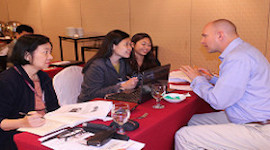
“Case studies put the students in the driver’s seat,” said John Branch, a professor at the University of Michigan’s Ross School of Business, who leads WDI workshops on case study pedagogy. “It is really the next best thing to learning on the job.”
With cases so directly impacting students’ overall training, case specifics matter considerably. And where a case is located especially matters.
A recent study by United Nations Conference on Trade and Development (UNCTAD) found that 87 percent of written case studies are based in “developed” countries. Even more tellingly, a miniscule 0.4 percent of case studies taught in business schools globally are set in “least developed countries.”
This is perhaps unsurprising within a certain paradigm of development, in which economic change begins by emulating success at the top rather than identifying local assets. Yet it has consequences. For one, schools in emerging markets end up teaching management, science, engineering – disciplines that traditionally drive economic growth – from a playbook that does not include local players. Disproportionately building a curriculum around the experiences of foreign corporations does not cultivate a localized entrepreneurial mentality in students, and can ill-prepare them for transitioning into the local workforce.
The STRIDE (Science, Technology, Research and Innovation for Development) project is a five-year, multi-million dollar effort funded by USAID in partnership with RTI International. The project’s goal is to strengthen applied research activity at Philippine universities and in industry. The cases are the result of workshops led by WDI case writing professionals and are among the first to be written by Filipino academics about domestic organizations. Topics include science, entrepreneurship, healthcare, engineering and more.
The STRIDE program’s Case Writing & Publishing Workshop attempts to support a new paradigm in the Philippines by equipping Philippines-based professors from diverse schools to produce and teach local cases. Starting with a three-day case workshop, the educators receive hands-on guidance on how to write cases as well as teach using the case method.
In the months following the workshop, many of these professors publish their own cases under the guidance of WDI case experts. As the database of cases grows on wdi-publishing.com, professors are able to source students’ industry exposure with examples based in the Philippines, instilling a mindset that Filipino companies and organizations will be the work contexts of the future for new graduates – and exciting ones at that. Beyond the immediate effects this has on the classroom experience, where the workforce of the future is prepared, the project is designed to create real linkages between industry and academe spanning a variety of research-focused fields.
I recently met with seven members of the project’s inaugural cohort of 35 (who represented 18 institutions) to learn about their experiences and successes following from the project, how they are paying forward their knowledge, and their recommendations for strengthening the project’s impact. Each of the seven, representing five institutions and several fields and classroom contexts, successfully published an original case study.
For a relatively small group, I learned that they are using their cases in a variety of educational contexts. These include a farmers’ cooperative, a three-campus consortium program, an open-enrollment online class, introductory undergraduate, upper-level graduate and post-graduate courses, and in disiciplines ranging from healthcare to social entrepreneurship to engineering. A year after their training, all seven express greater confidence teaching cases and commitment to further improving their technique. And, tellingly, all seven are interested in writing additional cases.
Raquel Laquiores of the Technological Institute of the Philippines (TIP) exemplifies this experience.
“I realized how it would be beneficial not just for my students but for all the other learners around the world,” she said. “I also gained confidence in my capacity as a teacher.”
Like others, she is interested in developing her case writing. “It is essential that we continuously write cases for us to enhance this skill,” she said.
Most of the professors report plans to share their new expertise with colleagues. Several aim to convene “echo seminars” on case writing among their own faculties, like Glenn Baticados of the Department of Agribusiness Management and Entrepreneurship at the University of the Philippines-Los Baños.
“We came to the realization, ‘Hey, the department needs to come up with a standard way of teaching cases at the university,’” he said. “We have been able to echo what we heard from the program, and right now we are in a stage of coming up with our own seminar on how to teach cases at the university.”
Such peer-to-peer dissemination is an intended goal of the five-year STRIDE case project, now entering its third year.
Following the success of the first workshop, WDI convened a second workshop in April 2015 for a cohort of 34, which collectively produced 22 new cases. These case have recently been released by WDI Publishing as part of The Philippines Case Collection. A third workshop is planned for March 2016.
This article was written by Nathan Rauh-Bieri, a program coordinator for WDI’s Education Initiative.
Community Economic Ventures Inc. (CEVI) is a non-stock, nonprofit microfinance organization and the Philippine arm of VisionFund International (VFI) and World Vision. CEVI has operated for the past 13 years in the Philippines as a key economic development partner to the poor by providing micro-credit, -savings, and -insurance to clients and in areas that the formal financial sector does not reach. VisionFund (VF) improves the lives of children in the developing world by offering small loans and other financial services to families living in poverty. Student intern Saranya Chongrungruang conducted an impact assessment to investigate how the organization could use microfinance to help vicims of Typhoon Haiyan.
The Hershey Company is the leading North American manufacturer of quality chocolate and non-chocolate confectionery and chocolate-related grocery products. The company also is a leader in the gum and mint category. Hershey was focusing efforts on developing business at the Base of the Pyramid and the student MAP team worked with the company to determine a better way to distribute and market its products to the Base of the Pyramid market in the Philippines.
The objective of the five-year STRIDE project was to strengthen the science, technology, research and innovation capacity in the Philippines, with a focus on higher education and disciplines that contribute to high-growth economic sectors as a means of accelerating economic growth.
Read the STRIDE Final Report here.
Contributing to STRIDE’s objectives WDI focused on providing:
During the four years of the STRIDE project, the WDI Publishing and Education teams worked with Philippine faculty to publish 94 case studies on a variety of topics, including entrepreneurship, environmental sustainability, and education. WDI also conducted a case teaching workshop for 33 Philippine faculty who then returned to their schools and have trained more than 500 of their colleagues to teach using the case method. The STRIDE cases will continue to be available to Philippine faculty in the STRIDE Case Study Collection and have also been used in Singapore, the Netherlands, and the United States.
As a part of WDI’s work under the STRIDE project, Prof. Noel Tarrazona attended WDI’s Case Writing and Case Teaching workshops and now regularly uses the case study he wrote in his Management course at Western Mindanao State University. Case studies are a groundbreaking new teaching method in the Philippines and are having a tremendous impact on students. This video shows the reaction of students in Prof. Tarrazona’s class to using case studies for the first time.
As a result of WDI’s career center work under STRIDE, our three partner career centers are now setting the standard in the Philippines for student career readiness, alumni engagement, and academe-industry relations. Between them these three centers serve more than 60,000 students and are well-equipped to prepare these young people for future careers in the rapidly expanding Philippine economy.
The STRIDE project has been incredibly successful, these stories document some of the many positive outcomes of the project.
STRIDE Success Story: Case Studies Strengthen Academe-Industry Cooperation
STRIDE Success Story: Case Studies Catch On in the Philippines
STRIDE Success Story: Professor at the University of the Philippines, Visayas, Takes Leadership Role in Case Study Development
STRIDE Success Story: Case Writer Expands Opportunities Available to Philippine Faculty in Mindanao
STRIDE Success Story: Three Model Career Centers Bridge Industry-Academe Barriers
STRIDE Success Story: Philippine University Expands Connection with Industry through Career Services
STRIDE Success Story: PHINMA University of Iloilo Students Gain Employment Advantage through Career Services
STRIDE Success Story: Career Center Develops Programs and Services for Student Body of 40,000
To read more about the STRIDE project, please see:
In the Philippines, Bridging Career Centers and Employers
Improving Business Education in the Philippines
Developing Filipino Entrepreneurs: Case-by-Case
The goal of the project was to evaluate markets and look for ways to foster public-private partnerships with Base of the Pyramid (BoP) enterprises. Another goal was to develop a blueprint for a new asset class of private equity funds considering BoP enterprises and investments in Bangladesh, Vietnam, India, Indonesia, Pakistan and the Philippines.
One of WDI’s global projects, the U.S. Department of State’s Leading Entrepreneur Expert Partnership (LEEP), partners with U.S. embassies and in-country collaborators to have professionals share their expertise and facilitate relationships and dialogue in emerging markets to motivate the next generation of entrepreneurs to develop solutions to global challenges.
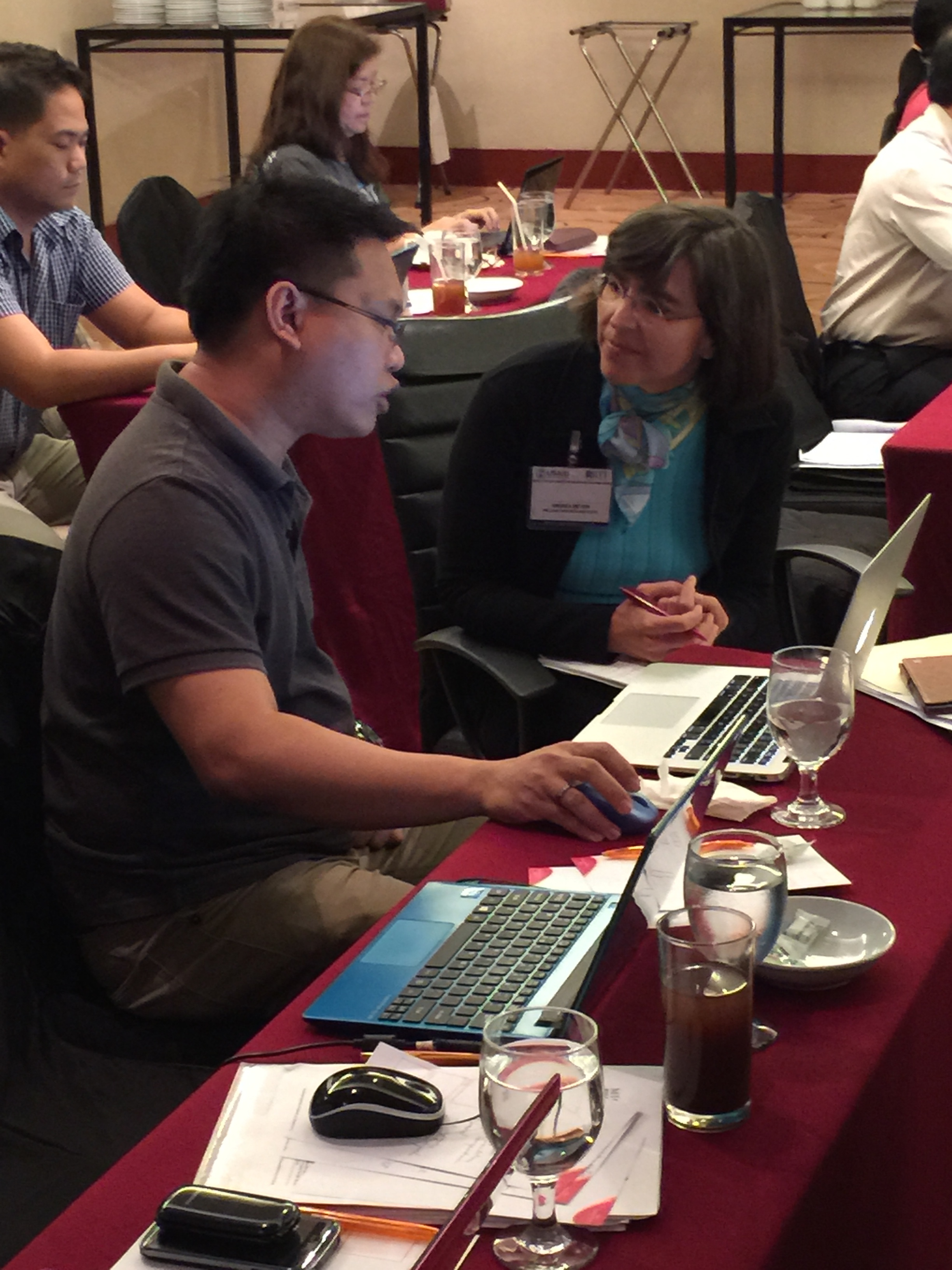
As part of the program, senior DCS consultant Andrea Meyer recently conducted two workshops on “Collaborative Innovation in Business and Entrepreneurship” in Manila, Philippines. Meyer spoke to a group of about 250 students and faculty at the Mapua Institute of Technology. Earlier in the day, Meyer spoke at the Ramon V. del Rosario College of Business at De La Salle University.
“The enthusiasm and energy were electric,” Meyer said. “And I’m already following up with faculty on an innovation and technology commercialization course.”
The U.S. Embassy in Manila arranged the two workshops, which were hosted by Dr. Ma. Luisa C. Delayco, Dean of Ramon V. del Rosario College of Business and Prof. Marthinson M. Villanueva, Dean of the E. T. Yuchengco School of Business and Management at MIT, respectively. Villanueva said that Meyer’s presentation “brought us to rethink the way we conduct our feasibility subjects as well as our business opportunities, with regard to coming up with innovations and start-up products.”
Meyer, co-author of numerous books including the Global Innovation Science Handbook and Present Yourself, was in Manila to also co-teach the STRIDE case writing workshop with WDI Faculty Affiliate John Branch, a marketing professor at the University of Michigan’s Ross School of Business.
WDI’s STRIDE project aims to foster economic growth and development in the Philippines through support of education, research, and industry partnerships in high-growth economic fields, including science and technology. The five-year project is funded by the United States Agency for International Development (USAID) in partnership with RTI International.
The three-day case writing workshop increases understanding and use of the case teaching method in the Philippines, where few cases about domestic companies and institutions have been written. Using case studies as teaching materials provides students with opportunities to apply what they are learning in the classroom to the real-life challenges and decisions faced by business owners and leaders of organizations.
Through collaboration with GlobaLens, WDI’s publishing division, each completed case will be professionally edited, published, and made available for free to university faculty members worldwide.
The 19 completed case studies from the first workshop, held last year, are available here: